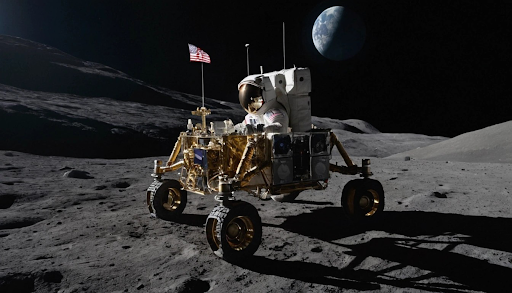. Photo by max .
In a landmark achievement for global space collaboration, NASA recently revealed that a Japanese astronaut will become the first non-American to step onto the Moon. This historic moment is part of the Artemis program, an initiative that not only aims to return humans to the Moon after more than five decades but also to include international astronauts in lunar expeditions for the first time since the Apollo era.The decision to include a Japanese astronaut in the Artemis program represents a significant shift from past practices, where all lunar explorations were carried out by American astronauts.
Photo by maxThis change underscores a new era of international partnership in space exploration, with the United States and Japan strengthening their ties through this monumental agreement.Under this collaboration, Japan will contribute significantly to the Artemis missions, including providing a pressurized lunar rover, affectionately named the "Lunar Cruiser." This rover will act as a mobile habitat and laboratory, supporting the astronauts on the lunar surface. In return, Japan will secure two seats for its astronauts on upcoming Artemis missions, marking a substantial contribution and investment in the program.
NASA Administrator Bill Nelson highlighted the importance of international collaboration in space exploration, stating, "America no longer will walk on the Moon alone." This sentiment was echoed by Japanese Prime Minister Fumio Kishida, who praised the agreement as a "symbol of the new era of Japan-US partnership."The identity of the Japanese astronaut who will make history has not yet been announced, but the selection is underway from among JAXA's elite astronaut corps. The first crewed mission of the Artemis program, Artemis 2, is set to launch in 2025 and will see four astronauts, including the first Canadian, orbit the Moon without landing. The subsequent mission, Artemis 3, aims for a lunar landing in 2026, potentially marking the historic walk of the selected Japanese astronaut on the Moon.This development is a significant step forward in international space diplomacy and exploration, signaling a future where such monumental achievements are pursued jointly by nations sharing a common vision for space exploration.


Kommentare
Kommentar veröffentlichen